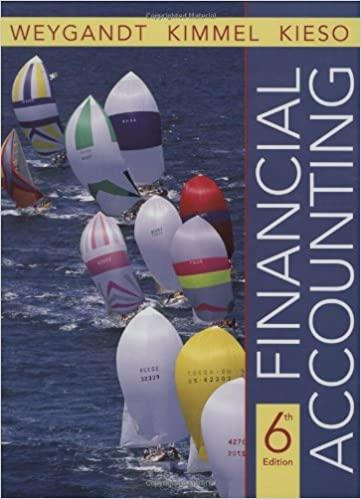





Montoure Company uses a perpetual inventory system. It entered into the following calendar-year purchases and sales transactions Units Sold at Retail Units Acquired at Cost 620 units @ $45 per unit 380 units @ $42 per unit 100 units @ $30 per unit Date Activities Jan. 1 Beginning inventory Feb. 10 Purchase Mar. 13 Purchase Mar. 15 Sales Aug. 21 Purchase Sept. 5 Purchase Sept. 10 Sales Totals 735 units @ $70 per unit 170 units @ $50 per unit 400 units @ $46 per unit 1,670 units 570 units @ $70 per unit 1,305 units Required: 1. Compute cost of goods available for sale and the number of units available for sale. Cost of goods available for sale Number of units available for sale - units units 2. Compute the number of units in ending inventory. Ending inventory units 3. Compute the cost assigned to ending Inventory using (a) FIFO. (b) LIFO, (weighted average, and (d) specific Identification. For specific Identification, units sold consist of 620 units from beginning Inventory, 280 from the February 10 purchase, 100 from the March 13 purchase, 120 from the August 21 purchase, and 185 from the September 5 purchase. Complete this question by entering your answers in the tabs below. Perpetual FIFO Perpetual LIFO Weighted Average Specific Id Compute the cost assigned to ending inventory using FIFO. (Round your average cost per unit to 2 decimal places.) Perpetual FIFO: Goods Purchased Cost per units unit Cost of Goods Sold Cost per cost of Goods Sold unit - Inventory Balance of units Cost per Inventory Date # of units sold Jan 1 620 @ $ 45.00 = $ 27,900.00 Feb 10 Mar 15 Aug 21 Sept Seot 10 3. Compute the cost assigned to ending Inventory using (a) FIFO, (b) LIFO, () Welghted average, and (d) specific Identification. For specific Identification, units sold consist of 620 units from beginning Inventory, 280 from the February 10 purchase, 100 from the March 13 purchase, 120 from the August 21 purchase, and 185 from the September 5 purchase. Complete this question by entering your answers in the tabs below. Perpetual FIFO Perpetual LIFO Weighted Average Specific Id Compute the cost assigned to ending inventory using LIFO. (Round your average cost per unit to 2 decimal places.) Perpetual LIFO: Goods Purchased # of Cost per units unit Cost of Goods Sold Cost per Cost of Goods Sold Date # of units sold Inventory Balance # of units Cost per Inventory unit Balance 820 @ $ 45.00 = $ 27,900.00 unit Jan 1 Feb 10 Mar 13 Mar 15 Aug 21 Seot 5 Sept 10 Totals 3. Compute the cost assigned to ending Inventory using (a) FIFO, (b) LIFO, (C) Welghted average, and (d) specific Identification. For specific Identification, units sold consist of 620 units from beginning Inventory, 280 from the February 10 purchase, 100 from the March 13 purchase, 120 from the August 21 purchase, and 185 from the September 5 purchase. Complete this question by entering your answers in the tabs below. Perpetual FIFO Perpetual LIFO Weighted Average Specific Id Compute the cost assigned to ending inventory using specific identification. For specific identification, units sold consist of 620 units from beginning inventory, 280 from the February 10 purchase, 100 from the March 13 purchase, 120 from the August 21 purchase, and 185 from the September 5 purchase. (Round your average cost per unit to 2 decimal places.) Specific Identification: Goods Purchased Cost of Goods Sold Inventory Balance Date # of units Cost per unit # of units sold Cost per unit Cost of Goods Sold Cost per Inventory Balance # of units 620 @ January 1 $ 45.00 = $ 27,900.00 February 10 March 13 March 15 Aug 21 Sep Sep 10 Totals 3. Compute the cost assigned to ending Inventory using (a) FIFO, (b) LIFO, () Welghted average, and (d) specific Identification. For specific Identification, units sold consist of 620 units from beginning Inventory, 280 from the February 10 purchase, 100 from the March 13 purchase, 120 from the August 21 purchase, and 185 from the September 5 purchase. Complete this question by entering your answers in the tabs below. Perpetual FIFO Perpetual LIFO Weighted Average Specific Id Compute the cost assigned to ending inventory using LIFO. (Round your average cost per unit to 2 decimal places.) Perpetual LIFO: Goods Purchased # of Cost per units unit Cost of Goods Sold Cost per Cost of Goods Sold Date # of units sold Inventory Balance # of units Cost per Inventory unit Balance 820 @ $ 45.00 = $ 27,900.00 unit Jan 1 Feb 10 Mar 13 Mar 15 Aug 21 Seot 5 Sept 10 Totals 3. Compute the cost assigned to ending Inventory using (a) FIFO, (b) LIFO, (C) Welghted average, and (d) specific Identification. For specific Identification, units sold consist of 620 units from beginning Inventory, 280 from the February 10 purchase, 100 from the March 13 purchase, 120 from the August 21 purchase, and 185 from the September 5 purchase. Complete this question by entering your answers in the tabs below. Perpetual FIFO Perpetual LIFO Weighted Average Specific Id Compute the cost assigned to ending inventory using specific identification. For specific identification, units sold consist of 620 units from beginning inventory, 280 from the February 10 purchase, 100 from the March 13 purchase, 120 from the August 21 purchase, and 185 from the September 5 purchase. (Round your average cost per unit to 2 decimal places.) Specific Identification: Goods Purchased Cost of Goods Sold Inventory Balance Date # of units Cost per unit # of units sold Cost per unit Cost of Goods Sold Cost per Inventory Balance # of units 620 @ January 1 $ 45.00 = $ 27,900.00 February 10 March 13 March 15 Aug 21 Sep Sep 10 Totals












